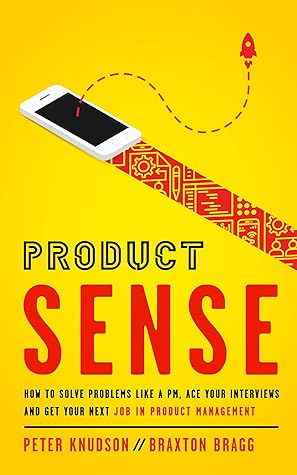Kindle Notes & Highlights
Read between
September 23 - October 1, 2023
They will also hire you to ensure that the solutions on which you’re trying to reach alignment are built (and operated) as optimally as possible. The more that you can demonstrate a sound problem-solving process, the better off you will be. Following the Compass Framework will help you highlight these talents and
Aim to have three to five stories that you can more or less memorize (without sounding too scripted) and adapt them to the context of specific interview questions.
“I’m very disappointed to hear that. Thank you for your time and consideration. Is there any information you could share about why the team decided not to proceed with my candidacy? I’d love to know where I can improve or how I can be a stronger applicant in the future.”
The joke is that the product manager gets blamed if anything goes wrong, but when things go right, the team is praised. The job is to keep something together and you're graded on the results.
A more senior colleague told me that he felt that it was his job to be blamed. You are literally hired, especially as you reach director and VP levels, to shield the team from fear and uncertainty so that they feel empowered to go and do the right things for the customer. Then your job is to be blamed if things go wrong, and you hope that in that period of time between the blame and when you started, that some good things were done.
As we go to senior positions, we are hired to get blamed and shield our reporters from the noise, so they can do their job
That means the person who drives the strategy is the person who is responsible for the results. So, the worst thing you want to do is be in a situation where a product manager is blamed for something he or she had zero control over.
Worst thing to do for PM is not give autonomy and blame him for everything if things did NOT go well.
The biggest challenge in dealing with situations like that, to get others to work with you, is through incentives. I'd say a lot of my job is actually building relationships, and trying to realign incentives, so that my team is able to execute on projects.
As I grow to become an executive level PM, my job will be just to re-align incentives so multiple teams can work together.
as, "Do I make the experience more favorable for the rider at the expense of the driver, or vice versa?" How do you make these decisions? Is it a value judgment, or do you build mechanisms, or is it arbitrary? I think ambiguity is probably one of the more challenging things.
Biggest challenge for product managers is ambiguity.
We need to learn to got to tackle ambiguity and convince stakeholders of the bigger goal.
Because at our level, if our goals are just inherently different, we need one step up to be able to make a trade-off and say, "What is more important for the company?" In that sense, the job we're doing is to provide them with the facts and the information as much as possible, so that they can facilitate a group decision.
As you shift to a more senior role, you also shift to thinking more about the big picture and how to tie things together across teams..


